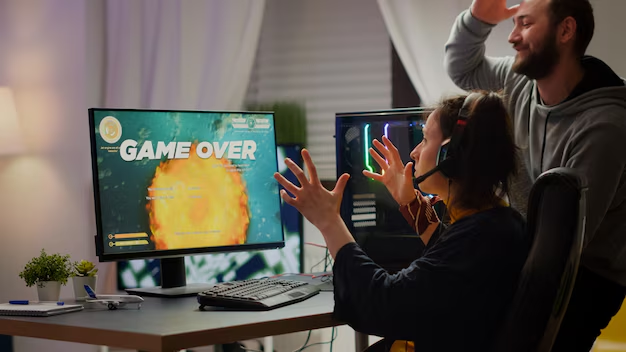In today’s world of online gaming, we’re not just seeking quick action and flashy graphics. Players are craving deeper, more rewarding experiences, which is where puzzles and challenges come into play. These elements offer more than just something extra to do; they create a more immersive, engaging, and sometimes mind-bending experience that can keep players hooked for hours on end. Let’s dive into how puzzles and challenges are reshaping the world of online gaming and why they’re so crucial to making games memorable and fun.

Post Contents
Why Puzzles Are a Game-Changer
Puzzles have always had a strong pull on our minds. From classic jigsaw puzzles to intricate escape rooms, the appeal of solving a problem is universal. In online games like slot, puzzles serve as a break from typical gameplay, providing players with a refreshing, mental workout that often requires critical thinking, creativity, and sometimes even teamwork.
Building Mental Engagement
One of the primary reasons players are drawn to puzzles is because they engage the brain. When players are solving a puzzle, they are actively thinking, strategizing, and making decisions. This creates a sense of accomplishment and satisfaction upon completion, rewarding the player with a burst of achievement. In contrast to straightforward gameplay, where the goal might be as simple as winning or beating a level, puzzles often require a more nuanced approach, making the gaming experience feel richer and more rewarding.
Enhancing Storytelling and World-Building
Puzzles and challenges are excellent tools for enhancing the story and immersion of a game. Instead of simply telling a story, puzzles can allow players to uncover hidden aspects of the game world, often revealing secrets, lore, or plot twists. Many adventure games use puzzles as gateways to deeper parts of the story, which allows players to feel more involved in the world they are exploring. This combination of gameplay and narrative creates a much more engaging experience, especially in role-playing games where immersion is essential.
Challenges: Adding Depth and Replayability
While puzzles encourage players to think, challenges offer another layer of engagement by testing skills. In many cases, challenges come in the form of timed tasks, skill-based missions, or survival modes that require players to push their abilities to the limit. This adds an extra layer of excitement and keeps the game from becoming repetitive.
Increasing Replay Value
One of the biggest struggles for game developers is creating content that keeps players coming back. Challenges, particularly ones that are difficult or that reset daily or weekly, are perfect for this. Games with challenges that change regularly, like Fortnite or Apex Legends, have managed to retain players by providing something fresh and motivating players to keep improving their skills. This also encourages a competitive element, as players often try to outdo themselves or their friends, adding to the game’s overall replay value.
Encouraging Skill Development
Challenges in games aren’t just there to frustrate players; they’re there to encourage growth. Some of the best multiplayer games have intricate systems of challenges that reward improvement over time. By learning the mechanics, improving reflexes, or mastering strategies, players can gain an advantage and become better at the game. This sense of progression keeps players motivated, as they can see tangible improvements in their abilities.
The Social Aspect: Puzzles, Challenges, and Teamwork
In multiplayer games, puzzles and challenges often take on a social dimension, requiring collaboration between players. This element of teamwork can make puzzles and challenges even more rewarding.
Cooperative Problem-Solving
Some games, like Destiny 2 or Escape from Tarkov, incorporate complex puzzles that players can only solve by working together. This promotes communication, coordination, and strategic planning, adding another level of satisfaction when the team finally solves a puzzle. Cooperative challenges and puzzles often foster friendships within the game, as players are more likely to form bonds while working together to achieve a common goal.
Friendly Competition
On the flip side, challenges also create a fun sense of competition. Many online games include leaderboards or timed events, allowing players to see where they stand against others. This friendly competition drives players to improve and offers a great sense of accomplishment when they achieve a high ranking. In games with player-vs-player (PvP) modes, challenges also enhance the experience by pushing players to master techniques and strategies, ultimately enriching the gaming community and player interaction.
Conclusion
From enhancing immersion and storytelling to fostering teamwork and competition, puzzles and challenges play a pivotal role in modern online gaming. They add depth, replayability, and social interaction, making games more than just a series of actions or battles. As gaming continues to evolve, the presence of well-crafted puzzles and challenges will remain a crucial factor in what makes a game truly memorable and engaging.